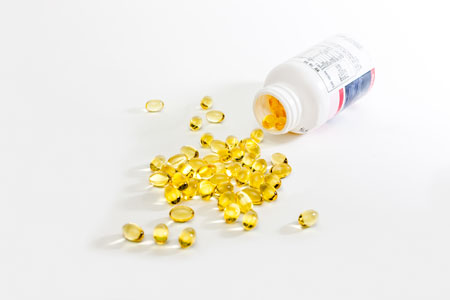People with High Inflammation Respond Best to EPA Omega-3 Fatty Acids in Depression
Omega-3 fatty acids are found in some green vegetables, vegetable oils, and fatty fish. There is some evidence that omega-3 fatty acid supplements can reduce depression, but researchers are trying to clarify which omega-3s are most helpful, and for whom. A new study in Molecular Psychiatry suggests that depressed people with higher inflammation may respond best to EPA omega-3 fatty acids compared to DHA omega-3 fatty acids or placebo. Researchers led by M.H. Rapaport divided people with major depressive disorder into “high” and “low” inflammation groups based on their levels of the inflammatory markers IL-1ra, IL-6, high-sensitivity C-reactive protein, leptin, and adiponectin. Participants were randomized to receive eight weeks of treatment with EPA omega-3 supplements (1060mg/day), DHA omega-3 supplements (900mg/day), or placebo.
While overall treatment differences among the three groups as a whole were negligible, the high inflammation group improved more on EPA than on placebo or DHA, and more on placebo than on DHA. The authors suggest that EPA supplementation may help relieve symptoms of depression in people whose depression is associated with high inflammation levels, a link common among obese people with depression.
Editor’s Note: These data add to a study by Rudolph Uher et al. in which people with high levels of C-reactive protein responded better to the tricyclic antidepressant nortriptylene, while those with low levels of the inflammatory marker responded better to the selective serotonin reuptake inhibitor antidepressant escitalopram.


